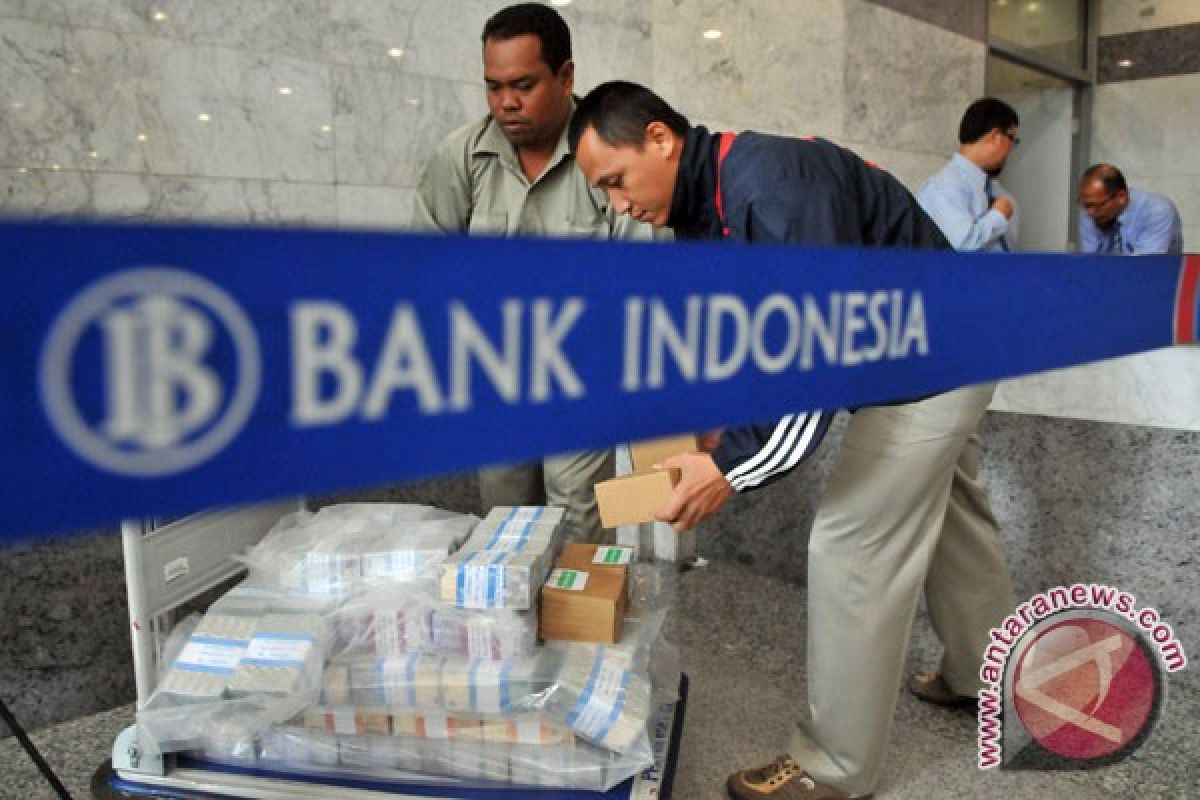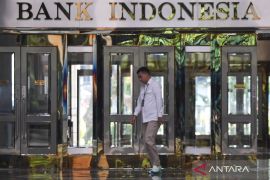Indonesia`s economy remained strong in the midst of global slowdown and uncertainty.Jakarta (ANTARA News) - Indonesia`s central bank decided to maintain its reference rate at 5.75 percent on Thursday.
The decision was made because it was still considered consistent with low and controlled inflation as targeted for 2012 and 2013 respectively at 3.5 to 5.5 percent, the executive director of Bank Indonesia`s department of strategic planning and public relations, Dody Budi Waluyo, said.
He said Indonesia`s economy remained strong in the midst of global slowdown and uncertainty.
The country`s economy grew 6.4 percent in the second quarter supported by high consumption and investment which was followed by quite high imports growth.
Exports however dropped steeply in line with global economic slowdown and the drop in global commodity prices.
Budi Waluyo said three main sectors that supported economic growth were processing industries, trade, hotel and restaurant and transportation and communication.
Overall the economic growth is expected to be between 6.2 and 6.5 percent in 2012 and to be accelerated to 6.3 to 6.7 percent in 2013 in line with strong consumption and investment.
Budi Waluyo meanwhile said the country`s foreign exchange reserves until the end of July rose a bit from the previous month h to US$106.6 billion enough for 5.6 months of imports and government foreign debt payment.
The rupiah exchange rate in July was pressured to depreciate by 0.56 percent point-to-point to Rp9,445 against the US dollar or averagely month-to-month at 0.29 percent to Rp9,433.
Pressures on the rupiah currency came from global uncertainty due to crisis in Europe and volatile US economic recovery as well as Chinese economic slowdown, he said.
Exports had also dropped to cause another pressure on the rupiah, he added.
In view of that Bank Indonesia has kept monitoring closely developments in the foreign currency market to keep the movement of the rupiah exchange rate in line with economic fundamentals.
Inflation has remained under control although it raised a but driven by seasonal factors (post-fasting holiday) and food price fluctuation.
Consumer price inflation index in July was recorded at 0.70 percent month-to-month to make the year-on-year inflation at 4.56 percent.
Prices of some food commodities have started to rise several weeks before the Ramadhan holiday in line with increasing demand and production cost as well as limited supplies from home and abroad.
Seasonal factors and domestic as well as global food price fluctuation have increased the core inflation in July although it remained at a relatively low level of 4.28 percent.
Inflation of administered prices meanwhile was recorded at a minimal level as no strategic government policies on goods and service prices had been issued. Inflation in 2012 and 2013 are predicted to remain within the range of 3.5 and 5.5 percent despite risks of inflationary pressure from food price fluctuations. (Uu.H-YH/F001)
Editor: Priyambodo RH
Copyright © ANTARA 2012












